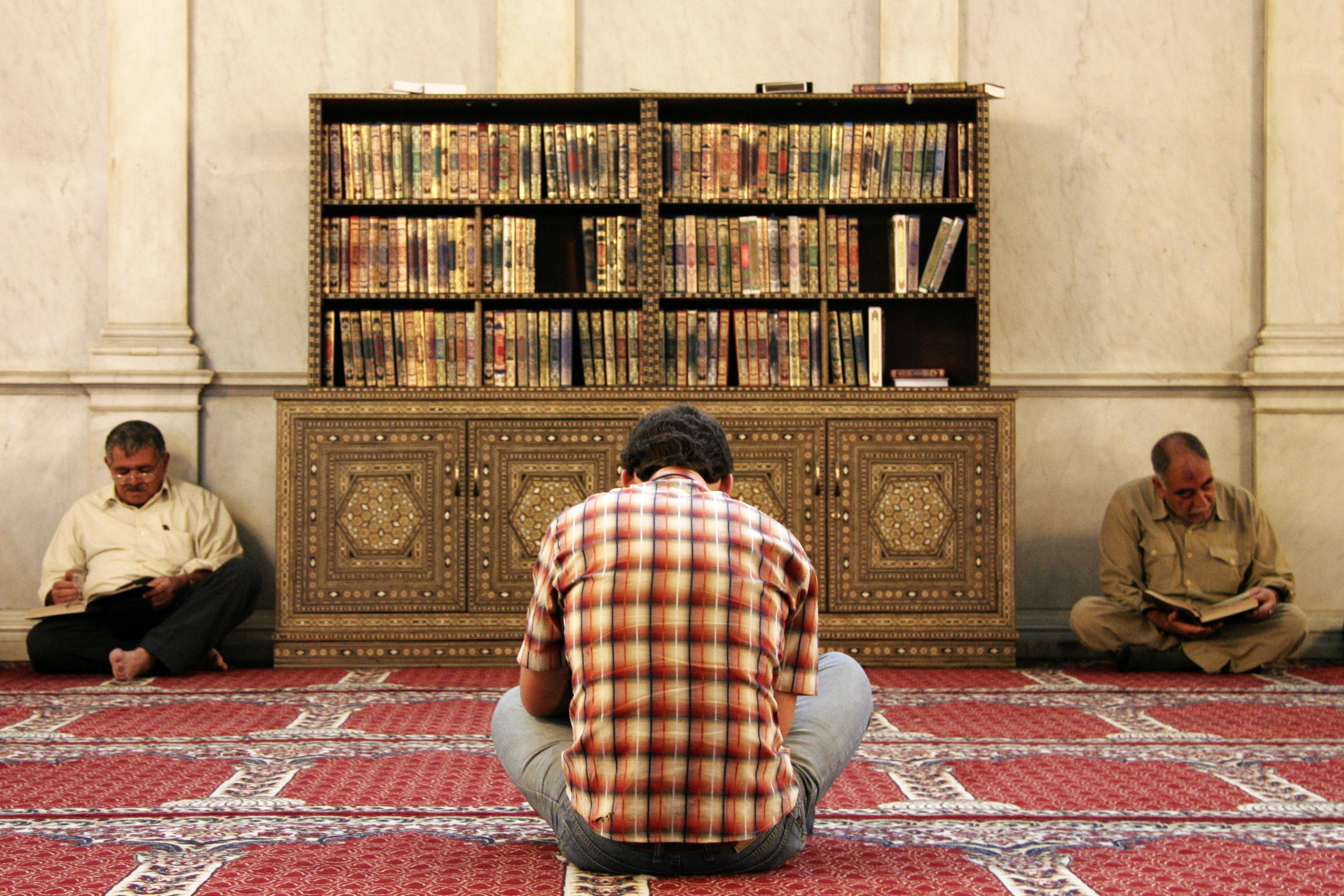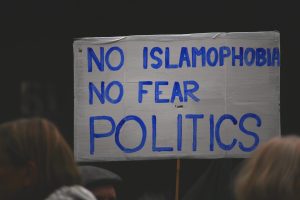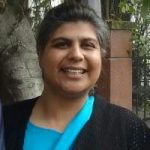By Arshia Malik
Islamophobia is a term bandied around very casually these days on anything and anybody who stands up to the regressive practices in Muslim culture and denounces their oppressive characteristics. The first to scream Islamophobia are the practicing Muslims themselves at ex-Muslims, or agnostic Muslims, or liberal Muslims who feel they should speak out against the various shortcomings in their culture, their religion, their text and their fellow Muslims.
A disclaimer first – I am aware that many cases of discrimination and abuse against Muslims are on the rise globally and these are clear cases of Muslimphobia rather than the fear of Islam as anyone can testify there is no one Islam: from the militant Wahhabi to the brutal Salafi; to the moderate Deobandi, to the liberal Sufi; to the various personal Islams that spiritual people all over the world have adopted as their personal quest and guide in this journey of life.
That said, I will focus on the area I am qualified enough to speak about because of my experiences. Why does any Muslim or ex-Muslim or agnostic or outspoken Muslim speak out against the religion they were born and brought up in? I can confidently say because they could not reconcile with the various transgresses they saw being carried out in the name of religion and under the garb of culture.
I saw my own mother maltreated by my father and his family which included women too, and this caused a lot of grief initially and developed into scepticism towards anything authoritarian just because I was not allowed or encouraged to question the bad behaviour of my father, cousins, uncles, and aunts in the joint patriarchal household of a family.
Of course, everyone will say transgressions do happen in large families, but what if the members derive theological warrant for everyday violence and violations of an individual’s body, their mind, and their space? Shouldn’t they start questioning why the behaviour is allowed in the first place and if it is openly practiced then shouldn’t the individual be critical of why there is no redress to a civic court of law, where there is a chance to be heard equally among peers and have the confidence that justice will be delivered?
Rarely, if ever, does it happen. Whenever there is a breach of trust by a family member in Muslim culture, firstly, there is an effort to suppress the knowledge of its occurrence. This effectively upholds the many fallacies such as: “women are treated with dignity in Islam”; “there is no domestic violence in Islam”; “Islam doesn’t have nay instance of incest or pedophilia”, “there is no racism or second class treatment in Islam” and so on and so forth. Having seen first hand the various cases of incest in my own family suppressed, lied about and worst of all denied, I know for sure that this suppression of crimes and violations is a part of Muslim culture which is generally tied to the honour of the family.

We all know these crimes as honor killings — the ones which make the news, not the ones which occur everyday such as beatings, locking the victims for hours in rooms, restricting their contact with the outside world, marrying them off in haste to strangers to “save” the honor — and the personal moral policing done by family members and the community as a whole.
So when this very culture sees outspoken people denounce the regressiveness, the brutality and the injustice prevalent in their own cultures, it developed a very clever way to suppress this dissent in the form of one word — Islamophobia. The Western world post-WWII, already reeling under its realisation of the brutality of the havoc one man could wreck on half the globe, flinching on the mounting evidence of genocide and wiped out populations through years of Western imperialism, developed a stubborn and defiant cultural relativism and became staunch in their liberal values. So much so that four decades later as the first signs of radicalism and extremism in Muslim culture started showing its symptoms they very vehemently denied that anything of it had to do with the religion itself or the text itself or the message itself.
This is the global fight, the international debate, the “clash of civilisations” I see today. Actively practicing deception (taqiyya) the takfiris (those who excommunicate others), using the liberal laws of Western countries, create harmful situations and barriers against the freedom of speech and the right to life, liberty and religion or lack of their fellow believers or former believers, with the help of often misled, yet well-meaning, Western liberals who swore with each new generation since the terrible wars that never again would any fascist make them commit unspeakable crimes against humanity.
In their fear of being labelled racist, or colonial or imperialists or even superior, they prefer to appease any and every believer who will stand up and say his or her cultural counterparts are being “Islamophobic”. There is rarely the question why they would do so. Why would ex-Muslims or agnostic Muslims risk their lives and that of their families to denounce regressive practices in their culture? For that matter why are their lives at risk at all? Why aren’t they (the outspoken activists) as free to advocate against cultural malpractices as the ones crying foul are free to advocate in favour of what they believe is a religion of peace?
I understand the concern of the liberals too. Coming from a subcontinent which has seen the bloody saga of a monotheistic religion pitched against a polytheistic one for centuries and still asks for more blood every few years in the name of Hinduism or Islam (depending on which political party is in power), I am all too familiar with the walk on eggshells when speaking out. In this charged up and dangerous atmosphere, anyone denouncing Islamists or radical Islam is quickly taken up by the Hindutva leaning factions as their poster boy or girl.
The same holds true for Islamist factions who praise and appreciate anyone pointing out the regressive practices in Hinduism such as the debilitating and inhuman caste system and term the person as “enlightened”. The minute the roles are reversed you can be sure no time is wasted in painting a Muslim cultural critic as a ‘jihadi’ if he so much as speaks against Hindutva and when a liberal Hindu tries to question the triple talaaq (divorce) under the Indian Penal Code and succeeds in shutting them up as, yes you guessed it, “Islamophobe”.
The fight is delicate, I agree. With real cases of discrimination on the rise against Muslims, it has to be very carefully fought. But there is a need to open the minds as to why those that denounce their cultures and risk their lives in doing so should not be listened to and their claims backed up with support and a firm calling for the other party crying “phobia” to clean out their homes first.
We got our modern nation states based on the ideas of justice, liberty, equality and freedom. We lost generations of our men and millions of kids grew up without fathers who died fighting to uphold those values. We have reached here today where we are pushing for animal and environmental rights, where we have started to include transgenders in our human rights and uphold the rights of the disabled as the foremost achievements, where we see the rights of senior citizens, veterans and the homeless as the pinnacle of the advancement of our civilization, where we have only now started fighting for the rights of the criminally insane, the unborn and the right to die of the terminally ill.
If we continue to stifle dissent and criticism with this one word of “Islamophobia”, we will be reversing our advancement of centuries from the dark ages of ignorance and superstition instead of progressing to new frontiers of the oceanic depths, galactic systems and the empowerment of women — for women are the last frontier!
Let’s empower the Muslim or ex-Muslim dissenters for they are the ones on the frontlines of the fight against fascism today.


